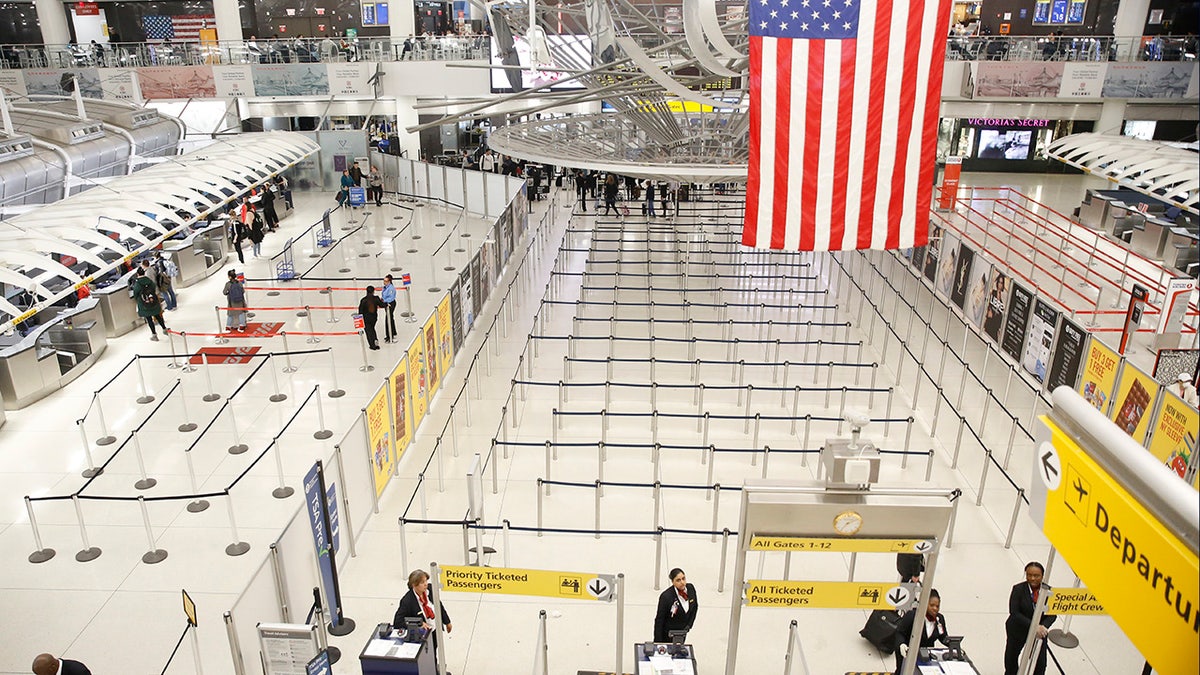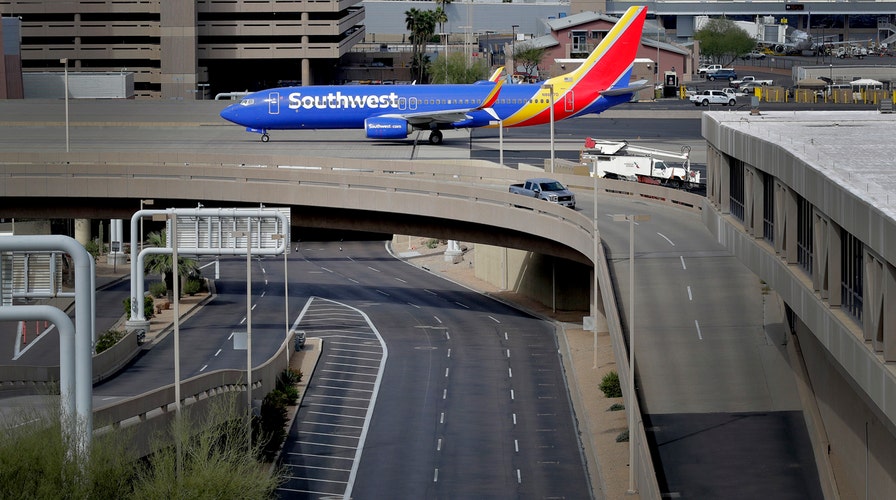Fox News Flash top headlines for April 15
Fox News Flash top headlines are here. Check out what's clicking on Foxnews.com.
Get all the latest news on coronavirus and more delivered daily to your inbox. Sign up here
It's going to be extremely difficult for the airline industry to return to normal, especially with the current bailout plans, aviation consultant Michael Boyd and pilot and aviation writer Rob Mark said on Wednesday's "Fox News Rundown" podcast.
Boyd told host Dave Anthony that he believes planes should stay grounded and airports should be closed for the time being because most passengers are forgoing flights in fear of the COVID-19 virus.
CLICK HERE FOR FULL CORONAVIRUS COVERAGE
"I mean, it suddenly, it's like having a business and there's no business. I mean, there's nobody who wants to use your services," he stated. "[American Airlines] says they're losing $100 million a day. So, either we get up out of our caves and start to bring the economy back, or you can wave goodbye to this airline industry."
"Delta said they were losing 60 million," he added. "So, I mean, this stuff about why should they fly the stuff? You have to fly everywhere you flew before. You take a grant from the government, you're going to fly empty airplanes? That's stupid. They need to shut down, conserve their cash, come back up bare-bones, and try to grow back with the economy."
SUBSCRIBE AND DOWNLOAD THE FOX NEWS RUNDOWN
Boyd told Anthony that the way to continue operating is by reorganizing: reducing flights, the size of airplanes, and closing some airports entirely. He also remarked that while airlines would take the $25 billion in financial aid from the government, they're still hemorrhaging more money because the emergency stipend does not cover fuel costs, maintenance, lease costs, or the overhead for the airplane on flights to cities with no one at the gates.
"So it's more cost-effective to say no to the government's money and just shut down?" asked Anthony.
"That would be my opinion," Boyd said. "Either that or just shut down and readjust to your system. But ... it's a real deal with the devil to say if I take your money, I have to keep flying to places where everything is empty because idiots in Congress think that there [are] passengers there."

The area for TSA screening of travelers at JFK airport's Terminal 1 is relatively empty, Friday, March 13, 2020, in New York. (AP Photo/Kathy Willens)
"We either let this kill us physically or economically or we do something different," he finished.
"I think it's going to be very difficult for the airlines to get going again and put people in a small space and not require something like a mask for some period of time when you're sitting two or three inches away from somebody," Mark told Anthony.
"I guess I don't think anybody really knows how we're going to cope with that kind of situation," he mused. "It is actually rather unique."
"I think it's going to be quite a while before we hear a flight attendant get on the PA and say, 'Well, we're expecting a full flight today,'" he pointed out.
"But now it is quiet all of the time," he continued further. "And we know inside this isn't coming back right away. I mean, we don't know when the end date is."
The federal financial aid provided will include a mix of cash and loans, with the government getting warrants that can be converted into small ownership stakes in the leading airlines.
Treasury Secretary Steven Mnuchin said Tuesday that the department would work to finalize the deals and hand over the money as quickly as possible to 10 big airlines, including Delta, American, United and Southwest. He also told reporters talks were continuing with other carriers.
CLICK HERE FOR THE FOX NEWS APP
President Trump said that the deals will support airline workers and protect taxpayers.
“Our airlines are now in good shape, and they will get over a very tough period of time that was not caused by them,” Trump said.
According to The Associated Press, the payroll relief is roughly based on each airline’s spending on wages and benefits from April through September 2019.





















